#music streaming service market
Explore tagged Tumblr posts
Text
Online Music Market Trends, Players, and Future Outlook
Introduction:
The online music market has experienced a truly remarkable ascension in recent years, driven by the digital revolution sweeping across the music industry. To fully grasp the current landscape, we must delve into key aspects such as market size, growth trajectory, revenue streams, prevailing trends, influential players, and the promising future that lies ahead.
Online Music Market Size, Share, and Growth:
The online music market has witnessed exponential growth, reaching a staggering USD 39.52 billion in 2023, marking a 14.7% increase from the previous year. This remarkable growth can be attributed to the ever-increasing popularity of streaming platforms and the widespread adoption of digital music services across the globe. Streaming reigns supreme, accounting for a dominant 70.8% share of the total revenue generated within the online music market.
Digital Music Market Trends:
Several compelling trends are shaping the digital music landscape:
Shifting from Ownership to Access: Consumers are increasingly embracing subscription-based models, favoring access to vast music libraries over purchasing individual songs or albums.
Personalized Experiences: The rise of personalized playlists, algorithm-driven recommendations, and high-fidelity audio formats are significantly enhancing the overall user experience.
AI and Machine Learning Integration: The integration of artificial intelligence (AI) and machine learning has become a game-changer, empowering platforms to analyze user preferences and tailor content accordingly. This not only fosters user engagement but also allows platforms to anticipate and cater to evolving consumer demands.
Online Music Industry Players:
The online music industry is a dynamic ecosystem teeming with key players vying for market share. As of the latest data, Spotify remains a frontrunner, boasting over 433 million active users and a staggering 182 million paying subscribers. Apple Music follows closely behind with a subscriber base of 80 million, highlighting the fierce competition within the market.
Beyond dedicated streaming platforms, social media has emerged as a significant player in the online music landscape. Platforms like TikTok and Instagram have transformed into influential hubs for music discovery and promotion, allowing artists to reach wider audiences and gain recognition.
Online Music Market Future Outlook:
Looking ahead, the future of the online music market appears resoundingly promising, driven by continued advancements in technology and the ever-evolving preferences of consumers. Projections suggest that the market will surpass USD 103.07 billion by 2030, fueled by the increasing penetration of high-speed internet and the widespread adoption of smart devices.
The demand for exclusive content and original programming is expected to rise, leading to strategic collaborations between streaming platforms and artists or record labels. As 5G technology becomes more prevalent, it will further revolutionize the online music experience by enabling faster streaming and immersive audio-visual content.
In conclusion, the digital music market has become a powerhouse within the broader music industry. With an impressive market size, continuous growth, and innovative trends shaping the future, the industry is experiencing a transformative era. As key players continue to vie for dominance and technology evolves at an unprecedented pace, the future outlook for the online music market remains bright, promising a harmonious blend of innovation and accessibility for music enthusiasts worldwide.
#online music streaming market share#recorded music market#online music player project report#online music revenue#online music market share#online music market size#music streaming service market#music industry#global music#digital music market#market research#business#ken research#market analysis#market report#market research report
1 note
·
View note
Text
the thing is it is all like one giant ad campaign. you are all trying to sell spotify. it's framed itself as an Experience and everyone wants to be a part of it. and it doesnt even have remember the laughter
#old man yells at cloud. won't someone please come be a hater with me#i have to say it i HATE spotify wrapped#i think this is the best marketing gimmick any streaming service has ever come up with and you are all selling the product for them.#every year.#for what?#YOU DON'T EVEN GET TO KEEP TTHE FUCKING MUSIC THEY CAN JUST DELETE IT ANY TIME. IF YOU STOP PAYING ITS ALL GONE!!#ggrrraarrgrghhhgh. insert tiny image of that one photo of ray screaming with blood pouring from his head.
43 notes
·
View notes
Text
first time people tell a content creator GIVE US MORE ADS
#i dont think they are greedy corporate monsters. i think they are creators trying to run a business with no knowledge on how to do that#icarus flying too close to the sun and all that#is just so clear they didn't make any kind of market research#a youtube poll would have helped them#is just a shitty thing because they clearly just want to have more creative freedom and do bigger things#but if you are running a business then you also need to think about your audience. which i don't think they did#and the international issue with dollars in this economy#+ the need to use a vpn in order to watch in certain countries apparently#+ an audience of mostly 20 somethings and younger people who have other priorities#and like nearly every single person that i've seen that actually likes this idea. has also said that are not paying#because they can't afford it. so even if people were on board with this. is just not viable with their audience#like sorry. but 'streaming service' is not plan b on the list of things to if you dont wanna rely so much on ads#and them doing a 14min long video that is edited like a shitty corporate apology video#in which you say 'if you can't give us money. bye ig' while promoting#a show about people traveling to dif places and paying expensive meals#while also saying you have no money to pay your 25!!! employees#not to mention not clarifying anything and leaving everything in vague terms#like international issues. whether you are deleting your previous youtube content or not (they don't say anything about this on the vid....#.... Variety said they were gonna do it. but then they did the pinned comment so it feels like they are backtracking...#...even if they were never gonna delete it)#what newer content you want to make. the pros you get subscribing#broken record with this. but watch the og dropout ad. its clear. adresses concerns. tells you what shows would be available#and the one moment that they use sad piano music is used with irony#ok. no further comments until they say something lol#watcher#my post
18 notes
·
View notes
Text
idk how ill survive the next 6 months juggling the blorbo wips, the ep im working on and my fucking bachelor thesis 💀
#theres so much work for the ep and i want it done by summer#not only do i have to write mix and master the songs#i have to do all the art for it and the photoshoot for the spotify profile AND the fucking marketing plan#i have one song nearly done and another started and the whole ep concept planned#i deleted most my other music off streaming services to have a blank slate#and im sooo hyped to reinvent myself as an artist 🫡#I LVOE ART GUYSSSSS#life is beautiful#n i sooo love doing Things#makes me extra happy#hela yaps
6 notes
·
View notes
Text
#restaurant tips#restaurant business#restaurant design#restaurant marketing#restaurant software#restaurant management software#restaurant sales#restaurant solutions#restaurant success#horeca#hospitality#hospitalitytrends#hospitalitybusiness#music for business#music streaming#music playlist#background music#music for cafes#customer service#restaurant trends#restaurant services
3 notes
·
View notes
Text
Surprisingly slim streaming subscription spend
Why is music streaming access so cheap? I get a month of ‘all-I-can-eat’ for less than the cost of a single disc. I realise it’s high-volume income at virtually zero distribution cost for the service provider. But, as a daily music listener, I would expect to pay much more to use the service as much as I do. Perhaps we’ll see tiered use rates introduced at some point. I asked my information…
0 notes
Text
never sorry for not shutting up but goddddd oh my god the most heavenly music you've ever heard in your fucking life will be from like a youtube video with less than 1,000 videos on it from a band who's lead guy died too young. and it's simultaneously lifechanging and the shittiest thing ever
youtube
#UUAUUUUUAUUAUGH#this is just one example but GOD#it makes me so mad the best shit is so close to the edge of being lost. and that some HAVE been lost potentially#but it also feels so special to find like i've found a little baby bird that is also a rare species only seen twice in the wild#i dont know. i could also bitch about the music industry and algorithms and pop culture seeming to want to just kill all creativity and art#in favor of like the most marketable songs with a 10 second catchy segment or that seems acceptable to play in the grocery store#i dont hate pop music i just. i hate capitalism i hate capitalism i hate it so much#and i hate when people are afraid of art thats too different or out there or too foreign. idk. idk#and i also hate that language barriers just naturally keep me from music and cool things. where is my universal translator.#this is getting unhinged. whatever. streaming services will be like we cant have that on our platform because um *fart.mp3*#Youtube
1 note
·
View note
Text
Penguin Random House, AI, and writers’ rights
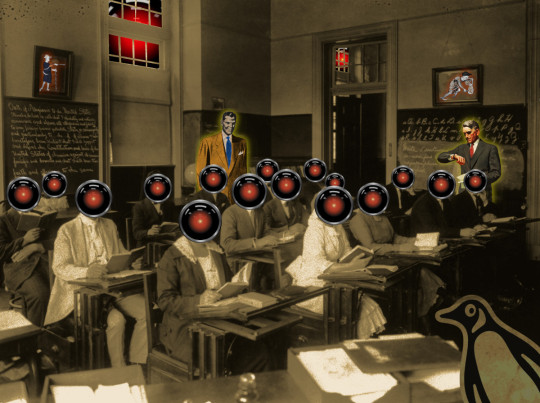
NEXT WEDNESDAY (October 23) at 7PM, I'll be in DECATUR, GEORGIA, presenting my novel THE BEZZLE at EAGLE EYE BOOKS.

My friend Teresa Nielsen Hayden is a wellspring of wise sayings, like "you're not responsible for what you do in other people's dreams," and my all time favorite, from the Napster era: "Just because you're on their side, it doesn't mean they're on your side."
The record labels hated Napster, and so did many musicians, and when those musicians sided with their labels in the legal and public relations campaigns against file-sharing, they lent both legal and public legitimacy to the labels' cause, which ultimately prevailed.
But the labels weren't on musicians' side. The demise of Napster and with it, the idea of a blanket-license system for internet music distribution (similar to the systems for radio, live performance, and canned music at venues and shops) firmly established that new services must obtain permission from the labels in order to operate.
That era is very good for the labels. The three-label cartel – Universal, Warner and Sony – was in a position to dictate terms like Spotify, who handed over billions of dollars worth of stock, and let the Big Three co-design the royalty scheme that Spotify would operate under.
If you know anything about Spotify payments, it's probably this: they are extremely unfavorable to artists. This is true – but that doesn't mean it's unfavorable to the Big Three labels. The Big Three get guaranteed monthly payments (much of which is booked as "unattributable royalties" that the labels can disperse or keep as they see fit), along with free inclusion on key playlists and other valuable services. What's more, the ultra-low payouts to artists increase the value of the labels' stock in Spotify, since the less Spotify has to pay for music, the better it looks to investors.
The Big Three – who own 70% of all music ever recorded, thanks to an orgy of mergers – make up the shortfall from these low per-stream rates with guaranteed payments and promo.
But the indy labels and musicians that account for the remaining 30% are out in the cold. They are locked into the same fractional-penny-per-stream royalty scheme as the Big Three, but they don't get gigantic monthly cash guarantees, and they have to pay the playlist placement the Big Three get for free.
Just because you're on their side, it doesn't mean they're on your side:
https://pluralistic.net/2022/09/12/streaming-doesnt-pay/#stunt-publishing
In a very important, material sense, creative workers – writers, filmmakers, photographers, illustrators, painters and musicians – are not on the same side as the labels, agencies, studios and publishers that bring our work to market. Those companies are not charities; they are driven to maximize profits and an important way to do that is to reduce costs, including and especially the cost of paying us for our work.
It's easy to miss this fact because the workers at these giant entertainment companies are our class allies. The same impulse to constrain payments to writers is in play when entertainment companies think about how much they pay editors, assistants, publicists, and the mail-room staff. These are the people that creative workers deal with on a day to day basis, and they are on our side, by and large, and it's easy to conflate these people with their employers.
This class war need not be the central fact of creative workers' relationship with our publishers, labels, studios, etc. When there are lots of these entertainment companies, they compete with one another for our work (and for the labor of the workers who bring that work to market), which increases our share of the profit our work produces.
But we live in an era of extreme market concentration in every sector, including entertainment, where we deal with five publishers, four studios, three labels, two ad-tech companies and a single company that controls all the ebooks and audiobooks. That concentration makes it much harder for artists to bargain effectively with entertainments companies, and that means that it's possible -likely, even – for entertainment companies to gain market advantages that aren't shared with creative workers. In other words, when your field is dominated by a cartel, you may be on on their side, but they're almost certainly not on your side.
This week, Penguin Random House, the largest publisher in the history of the human race, made headlines when it changed the copyright notice in its books to ban AI training:
https://www.thebookseller.com/news/penguin-random-house-underscores-copyright-protection-in-ai-rebuff
The copyright page now includes this phrase:
No part of this book may be used or reproduced in any manner for the purpose of training artificial intelligence technologies or systems.
Many writers are celebrating this move as a victory for creative workers' rights over AI companies, who have raised hundreds of billions of dollars in part by promising our bosses that they can fire us and replace us with algorithms.
But these writers are assuming that just because they're on Penguin Random House's side, PRH is on their side. They're assuming that if PRH fights against AI companies training bots on their work for free, that this means PRH won't allow bots to be trained on their work at all.
This is a pretty naive take. What's far more likely is that PRH will use whatever legal rights it has to insist that AI companies pay it for the right to train chatbots on the books we write. It is vanishingly unlikely that PRH will share that license money with the writers whose books are then shoveled into the bot's training-hopper. It's also extremely likely that PRH will try to use the output of chatbots to erode our wages, or fire us altogether and replace our work with AI slop.
This is speculation on my part, but it's informed speculation. Note that PRH did not announce that it would allow authors to assert the contractual right to block their work from being used to train a chatbot, or that it was offering authors a share of any training license fees, or a share of the income from anything produced by bots that are trained on our work.
Indeed, as publishing boiled itself down from the thirty-some mid-sized publishers that flourished when I was a baby writer into the Big Five that dominate the field today, their contracts have gotten notably, materially worse for writers:
https://pluralistic.net/2022/06/19/reasonable-agreement/
This is completely unsurprising. In any auction, the more serious bidders there are, the higher the final price will be. When there were thirty potential bidders for our work, we got a better deal on average than we do now, when there are at most five bidders.
Though this is self-evident, Penguin Random House insists that it's not true. Back when PRH was trying to buy Simon & Schuster (thereby reducing the Big Five publishers to the Big Four), they insisted that they would continue to bid against themselves, with editors at Simon & Schuster (a division of PRH) bidding against editors at Penguin (a division of PRH) and Random House (a division of PRH).
This is obvious nonsense, as Stephen King said when he testified against the merger (which was subsequently blocked by the court): "You might as well say you’re going to have a husband and wife bidding against each other for the same house. It would be sort of very gentlemanly and sort of, 'After you' and 'After you'":
https://apnews.com/article/stephen-king-government-and-politics-b3ab31d8d8369e7feed7ce454153a03c
Penguin Random House didn't become the largest publisher in history by publishing better books or doing better marketing. They attained their scale by buying out their rivals. The company is actually a kind of colony organism made up of dozens of once-independent publishers. Every one of those acquisitions reduced the bargaining power of writers, even writers who don't write for PRH, because the disappearance of a credible bidder for our work into the PRH corporate portfolio reduces the potential bidders for our work no matter who we're selling it to.
I predict that PRH will not allow its writers to add a clause to their contracts forbidding PRH from using their work to train an AI. That prediction is based on my direct experience with two of the other Big Five publishers, where I know for a fact that they point-blank refused to do this, and told the writer that any insistence on including this contract would lead to the offer being rescinded.
The Big Five have remarkably similar contracting terms. Or rather, unremarkably similar contracts, since concentrated industries tend to converge in their operational behavior. The Big Five are similar enough that it's generally understood that a writer who sues one of the Big Five publishers will likely find themselves blackballed at the rest.
My own agent gave me this advice when one of the Big Five stole more than $10,000 from me – canceled a project that I was part of because another person involved with it pulled out, and then took five figures out of the killfee specified in my contract, just because they could. My agent told me that even though I would certainly win that lawsuit, it would come at the cost of my career, since it would put me in bad odor with all of the Big Five.
The writers who are cheering on Penguin Random House's new copyright notice are operating under the mistaken belief that this will make it less likely that our bosses will buy an AI in hopes of replacing us with it:
https://pluralistic.net/2023/02/09/ai-monkeys-paw/#bullied-schoolkids
That's not true. Giving Penguin Random House the right to demand license fees for AI training will do nothing to reduce the likelihood that Penguin Random House will choose to buy an AI in hopes of eroding our wages or firing us.
But something else will! The US Copyright Office has issued a series of rulings, upheld by the courts, asserting that nothing made by an AI can be copyrighted. By statute and international treaty, copyright is a right reserved for works of human creativity (that's why the "monkey selfie" can't be copyrighted):
https://pluralistic.net/2023/08/20/everything-made-by-an-ai-is-in-the-public-domain/
All other things being equal, entertainment companies would prefer to pay creative workers as little as possible (or nothing at all) for our work. But as strong as their preference for reducing payments to artists is, they are far more committed to being able to control who can copy, sell and distribute the works they release.
In other words, when confronted with a choice of "We don't have to pay artists anymore" and "Anyone can sell or give away our products and we won't get a dime from it," entertainment companies will pay artists all day long.
Remember that dope everyone laughed at because he scammed his way into winning an art contest with some AI slop then got angry because people were copying "his" picture? That guy's insistence that his slop should be entitled to copyright is far more dangerous than the original scam of pretending that he painted the slop in the first place:
https://arstechnica.com/tech-policy/2024/10/artist-appeals-copyright-denial-for-prize-winning-ai-generated-work/
If PRH was intervening in these Copyright Office AI copyrightability cases to say AI works can't be copyrighted, that would be an instance where we were on their side and they were on our side. The day they submit an amicus brief or rulemaking comment supporting no-copyright-for-AI, I'll sing their praises to the heavens.
But this change to PRH's copyright notice won't improve writers' bank-balances. Giving writers the ability to control AI training isn't going to stop PRH and other giant entertainment companies from training AIs with our work. They'll just say, "If you don't sign away the right to train an AI with your work, we won't publish you."
The biggest predictor of how much money an artist sees from the exploitation of their work isn't how many exclusive rights we have, it's how much bargaining power we have. When you bargain against five publishers, four studios or three labels, any new rights you get from Congress or the courts is simply transferred to them the next time you negotiate a contract.
As Rebecca Giblin and I write in our 2022 book Chokepoint Capitalism:
Giving a creative worker more copyright is like giving your bullied schoolkid more lunch money. No matter how much you give them, the bullies will take it all. Give your kid enough lunch money and the bullies will be able to bribe the principle to look the other way. Keep giving that kid lunch money and the bullies will be able to launch a global appeal demanding more lunch money for hungry kids!
https://chokepointcapitalism.com/
As creative workers' fortunes have declined through the neoliberal era of mergers and consolidation, we've allowed ourselves to be distracted with campaigns to get us more copyright, rather than more bargaining power.
There are copyright policies that get us more bargaining power. Banning AI works from getting copyright gives us more bargaining power. After all, just because AI can't do our job, it doesn't follow that AI salesmen can't convince our bosses to fire us and replace us with incompetent AI:
https://pluralistic.net/2024/01/11/robots-stole-my-jerb/#computer-says-no
Then there's "copyright termination." Under the 1976 Copyright Act, creative workers can take back the copyright to their works after 35 years, even if they sign a contract giving up the copyright for its full term:
https://pluralistic.net/2021/09/26/take-it-back/
Creative workers from George Clinton to Stephen King to Stan Lee have converted this right to money – unlike, say, longer terms of copyright, which are simply transferred to entertainment companies through non-negotiable contractual clauses. Rather than joining our publishers in fighting for longer terms of copyright, we could be demanding shorter terms for copyright termination, say, the right to take back a popular book or song or movie or illustration after 14 years (as was the case in the original US copyright system), and resell it for more money as a risk-free, proven success.
Until then, remember, just because you're on their side, it doesn't mean they're on your side. They don't want to prevent AI slop from reducing your wages, they just want to make sure it's their AI slop puts you on the breadline.

Tor Books as just published two new, free LITTLE BROTHER stories: VIGILANT, about creepy surveillance in distance education; and SPILL, about oil pipelines and indigenous landback.


If you'd like an essay-formatted version of this post to read or share, here's a link to it on pluralistic.net, my surveillance-free, ad-free, tracker-free blog:
https://pluralistic.net/2024/10/19/gander-sauce/#just-because-youre-on-their-side-it-doesnt-mean-theyre-on-your-side

Image: Cryteria (modified) https://commons.wikimedia.org/wiki/File:HAL9000.svg
CC BY 3.0 https://creativecommons.org/licenses/by/3.0/deed.en
#pluralistic#publishing#penguin random house#prh#monopolies#chokepoint capitalism#fair use#AI#training#labor#artificial intelligence#scraping#book scanning#internet archive#reasonable agreements
708 notes
·
View notes
Text


Ever wondered where the Veterans would take you on a date?
Contains: Erwin Smith, Levi Ackerman, Hange Zoe
Synopsis: brief Headcannons about where the Vets would take you on a date
Warnings: None


Erwin smith? Applebee’s💀
lmfao I’m joking, but the way i see it, Erwin strikes me as the goofy, endearingly cringy, single dad type of guy that really believes Applebee’s is the epitome of fine dining. Thankfully, he listens when Levi tells him to have a little class💀
In all seriousness, I think he’d be the type to take you wine tasting, go to see live music performances at local venues, or browsing a cute little craft market on a crisp spring morning.
He’d clean up nice beforehand, probably wear some jeans and a button up shirt, and this man would smell…so…fucking…good😩 like fresh powdery cologne and spearmint gum. You’d get in his car and he’d already have your favorite coffee order in the cupholder waiting for you. Omg i love him
Levi Ackerman? Tea shops, local bakeries, art museums, bookstores, theater.
Levi has a love for the arts, and anything intellectually stimulating. He likes to take his time getting to know the person he’s interested in, so he wouldn’t want to do any kind of activity he couldn’t talk during. It’s a common headcannon among us Levi lovers that he’s an acts of service kind of guy, so you know he’ll be always observing what kind of pastries you order, what kind of tea you like, or your favorite genre of book.
When Levi takes interest in someone, he doesn’t take them for granted. He’s always perusing, always chasing, always loving, so diligently. Gas will never be an issue, this man will drive you across town and back 4 times if you asked him to. He plans dates ahead of time, and always comes prepared, with a wallet full of cash and a tank full of gas, and If he ends the night empty handed, he’ll call it a job well done.
Hange Zoe? Hikes, smoke sesh on the roof, metaphysical shops, farmers markets, picnics, nature walks, the zoo.
Hange is one of those earthly granola people. They’re 100% vegan, grounded to the world around them, and a huge animal lover, so i love the idea that they’ll want to go on a hike to bird watch or pet some moss. Just imagine how cute it would be, you’re both walking around in a stream in the woods, pant legs hiked up around your calves, looking for pretty colored stones for your collection. The sun is peaking through the tree line and you both smell like sweat and sunscreen and earth. Hange finds a turtle or a small frog and catches it to show you🥹 they make me so soft. They’ll also 100% get sunburnt on their nose and cheeks because they can’t ever remember to apply sunscreen there.
Hange is the type to love taking photos of you on dates, and add them to the photo wall in their apartment. If you go to visit, the two of you will pack a bowl and laugh about the memories you have together as you look over the pictures, some kind of cozy music playing in the background.

#attack on titan#aot#aot smut#aot x reader#levi ackerman#levi ackerman x reader#sub!levi#sub!levi ackerman#aot headcanons#aot x y/n#hange zoe#hange zoë#hange zoe x reader#hange zoe x y/n#hange zoe x you#hange zoe smut#hange zoe headcanons#erwin smith#aot erwin#erwin smut#erwin smith x reader#erwin smith headcannons#Aiko’sHeadcannons
257 notes
·
View notes
Text
how can anyone get excited for anything anymore when it'll probably just get canceled after one season. how are fandoms gonna continue to flourish when they have to act as walking billboards and advertisements just so that the creators can actually tell their story in full. how can streaming services expect fans to support their favorite shows when they don't even bother advertising their own shows or making merch. how can netflix continue to market themselves as a way for creators to tell their stories without executive meddling when a well established showrunner can pitch 18 new ideas and the only ones that get approved are reboots based on previous ips. how can a show get high ratings on rotten tomatoes and praised for having good writing, representation, storytelling, music, etc. and win awards but still get canned bc god forbid someone asks for higher wages and be paid fairly for their labor. hate hate hate death to all streaming services
#/personal#netflix#dead end and midnight gospel and inside job all deserve better than this#i genuinely will not be shocked if my fave show on their platform (tcs) is next on the chopping block#that's it that's the post send tweet
2K notes
·
View notes
Text
In-Depth Analysis of the Online Music Streaming Market
Introduction:
The online music industry has undergone a remarkable transformation, with streaming services taking center stage. This market research article delves into the current landscape, analyzing its size, growth, key trends, and future prospects.
Market Boom: A Symphony of Growth
The online music streaming market size reached a staggering USD 39.52 billion in 2023, and is projected to soar to USD 101.03 billion by 2030, boasting a robust compound annual growth rate (CAGR) of 14.4%. This surge is primarily driven by the dominance of online music streaming, which captured a 70.8% share of the market in 2022 and is expected to maintain its lead.
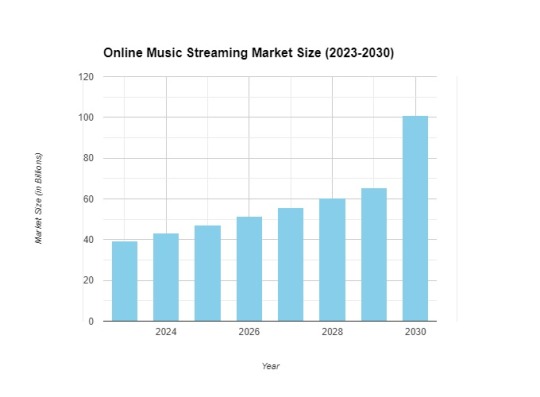
Key Players: The Masters of the Orchestra
The industry is a competitive battleground for listener attention, with leading platforms vying for supremacy. Spotify currently reigns supreme with 433 million monthly active users, followed by Apple Music at 80 million and Amazon Music at 55 million. These giants rely heavily on subscription models, with monthly fees unlocking vast music libraries for users. In fact, streaming subscriptions accounted for a formidable 75.4% share of total online music market revenue in 2022.
Melodies of Innovation: Trends Shaping the Industry
Several trends are shaping the future of the online music market:
Personalization: Platforms are leveraging algorithms and user data to curate personalized playlists and recommendations, enhancing user experience and engagement.
Podcasts and Audiobooks: The integration of podcasts and audiobooks is expanding offerings and attracting a wider audience.
Live Streaming: Live streaming concerts and events are gaining traction, fostering deeper artist-fan connections and revenue opportunities.
Lossless Audio and High-Fidelity: The increasing demand for superior audio quality is driving the adoption of lossless and high-fidelity streaming options.
Emerging Markets: The growth is expected to be particularly pronounced in emerging markets like Asia and Africa, fueled by rising internet penetration and smartphone adoption.
Future Symphony: A Promising Outlook
The future of online music streaming market appears bright. Here are some key projections:
Market Expansion: The market is anticipated to witness continued growth, reaching an estimated USD 103.07 billion by 2030.
Evolving Business Models: Alternative monetization models, such as tiered subscriptions, bundled services, and microtransactions, are likely to emerge alongside traditional subscriptions.
Technological Advancements: Continued advancements in artificial intelligence, virtual reality, and augmented reality are expected to further personalize and enhance the music streaming experience.
Focus on Artist Compensation: Addressing artist compensation concerns and ensuring fair revenue distribution will remain crucial for the industry's long-term sustainability.
Conclusion:
The online music streaming market is experiencing a golden age, driven by a growing user base, innovative offerings, and evolving technologies. As the industry continues to evolve, it will be fascinating to witness how it navigates the ever-changing landscape and delivers a truly harmonious experience for both music lovers and industry stakeholders.
#music market#streaming music market share#worldwide music industry#size of music industry#trends in music industry#music industry trends#music industry market size#music industry revenue#music industry companies#music industry size#music streaming growth#music streaming market share#market share streaming music#music streaming industry market share#music streaming market#digital music market#music streaming service market#online music market share#online music market size#online music revenue#online music streaming market share#market research#business#ken research#market analysis#market report#market research report#online music
1 note
·
View note
Text
The Homebound’s-Guide to Being Punk
These are some suggestions for people that for whatever reason don’t have their own money, are dependent on other people for rides, are generally homebodies, or anything similar.
When you can, thrift your clothes! A lot of times you shop wherever someone brings you or wherever someone gets you a gift card to, but if you can, try thrifting!
Research a topic you’re interested in, and try finding an organization that is doing some good in that area, and bring some attention to them!
Support smaller artists by doing things like reblogging their art, listening to local bands in your area on a music streaming service, or reading books by local authors.
Hire local people to do odd jobs! Local plumbers, local electricians, etc. The decision might be out of your hands, but it’s worth bringing up to whoever is in charge.
If someone brings you to a store, bring a backpack and consider getting some stuff that you wouldn’t normally pay for, and consider having someone donate it for you, or donate it yourself if someone is willing to give your a ride someplace you can.
Try and get your produce and baked goods from local sellers like farmer’s markets, country markets, etc. by asking people to shop there/take you shopping there instead.
Create what you can around your living area for local wildlife, even if it’s just leaving a bowl of water out for birds to bathe in and drink from.
Plant your own fruits/vegetables if possible.
Establish relationships with the people in your neighborhood.
Call/email your local representatives/politicians on topics you want them to vote for/against.
Do craft projects at home like making blankets or dolls or clothes that can be donated.
256 notes
·
View notes
Text
If Taylor Swift Had Endorsed Donald Trump
Democrats would scorn her business savvy, cap her ticket prices, and fret over her huge carbon footprint.
Wall Street Journal
By Allysia Finley
Forbes estimates Taylor Swift’s net worth at $1.3 billion. Despite her liberal leanings, the singer-songwriter has amassed her wealth the old-fashioned way: through hard work, talent and business savvy. Her endorsement of Kamala Harris last week is rich considering she owes her success to the capitalist system the vice president wants to tear down.
“The way I see it, fans view music the way they view their relationships,” Ms. Swift wrote in a 2014 piece for the Journal. “Some music is just for fun, a passing fling. . . . Some songs and albums represent seasons of our lives, like relationships that we hold dear in our memories but had their time and place in the past. However, some artists will be like finding ‘the one.’ ” She has become “the one” for hundreds of millions of fans worldwide with lyrics that chronicle relationship woes women commonly experience.
Ms. Swift took advantage of her ardent fan base in 2014 by removing her catalog from Spotify in a bid for higher royalties. “Valuable things should be paid for. It’s my opinion that music should not be free,” she explained. “My hope for the future, not just in the music industry, but in every young girl I meet, . . . is that they all realize their worth and ask for it.”
She also criticized Apple Music for not paying artists during the streaming service’s free trial, prompting the company to change its policy. As she jeers in a hit song, “Who’s afraid of little old me?” Apparently, Big Tech companies.
Last year she reportedly raked in $200 million from streaming royalties on top of the estimated $15.8 million she grossed per performance during her recent “Eras” tour. Some fans have shelled out thousands of dollars on the resale market to see Ms. Swift perform. Americans have even traveled to Europe when they couldn’t get tickets in the U.S.
Her fan base may be more loyal and enthusiastic than Donald Trump’s. JD Vance scoffed at the idea that the star’s endorsement of Ms. Harris could influence the outcome of the election. The “billionaire celebrity,” he said, is “fundamentally disconnected from the interests and the problems of most Americans.” Maybe, but she certainly taps into the problems of young women.
Democrats hope to use Ms. Swift’s endorsement to drive them to the polls. But it isn’t difficult to imagine what the left would be saying about her had she endorsed the Republican antihero. It might go something like this:
The billionaire has gotten rich by ripping off fans, avoiding taxes and harming competitors. Time for the government to break her up. Unlike rival artists, Ms. Swift writes, performs and owns her compositions. This vertical integration allows her to charge exorbitant royalties and ticket prices.
Tickets for her “Eras” tour on average cost about $240. That’s merely the price for admission—not including food, drink or Swiftie swag. VIP passes that include memorabilia go for $899. How dare she make young women choose between paying for groceries or rent and going to a concert.
The Federal Trade Commission must cap Ms. Swift’s ticket prices at a reasonable price—say, $20—and ban her junk fees. Concertgoers shouldn’t have to pay $65 for an “I Love You It’s Ruining My Life” sweatshirt.
Her romance with Kansas City Chiefs tight end Travis Kelce also unfairly boosts their star power, letting them charge more for endorsements. As Ms. Swift writes in one song, “two is better than one.” Mr. Kelce reportedly signed a $100 million podcast deal with Amazon’s Wonderly. By breaking up the couple, the government could reduce their royalties and ticket prices.
Ms. Swift, the self-described “mastermind,” also dodges taxes on her “full income,” which includes some $125 million in real estate and a music catalog worth an estimated $600 million. “They said I was a cheat, I guess it must be true,” Ms. Swift acknowledges in her song “Florida!!!”
Under the Biden-Harris administration’s proposed billionaire’s tax, she would have to pay a 25% levy on the $1 billion increase in her fortune since 2017. But that isn’t enough. Ms. Swift should also have to pay taxes on the appreciating value of her “name, image and likeness,” which the Internal Revenue Service considers an asset.
How much is her brand worth? Easily billions. She might say, as she does in a song, that her “reputation has never been worse.” True, Miss Americana’s image took a hit after reports that her private-jet travel in 2022 emitted 576 times as much CO2 as the average American in a year. When Ms. Swift sings, “It’s me, hi, I’m the problem, it’s me,” she’s correct. She and her fat-cat friends are what’s wrong with America.
Appeared in the September 16, 2024, print edition as 'If Taylor Swift Had Endorsed Donald Trump'.
#Taylor Swift#swifites#eras tour london#TS13#trump#president trump#trump 2024#repost#donald trump#america first
81 notes
·
View notes
Text
From Myspace to Spotify: The Journey of Indie Sleaze Music in the Digital Age 🌐

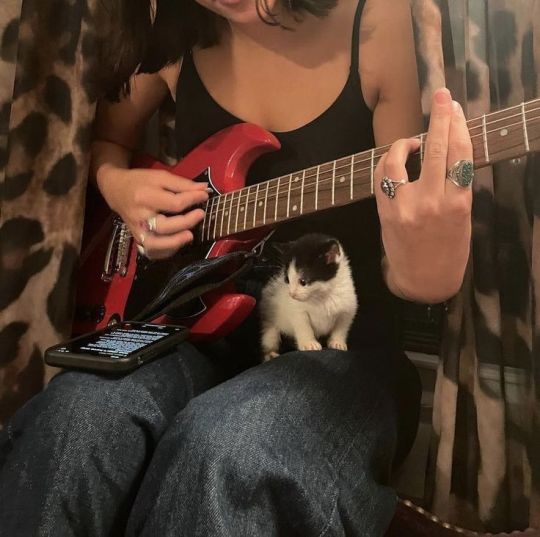
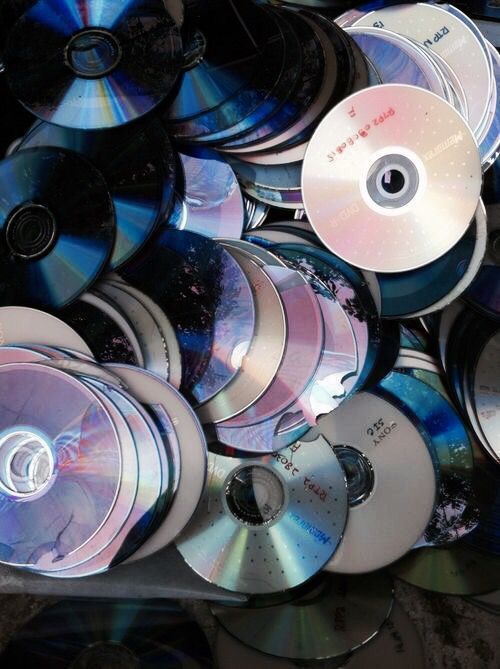
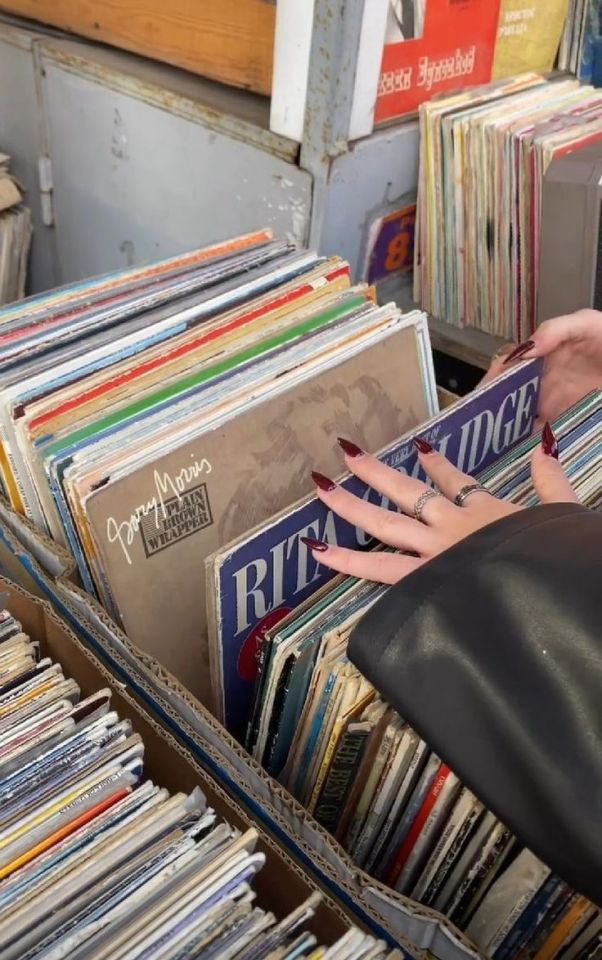
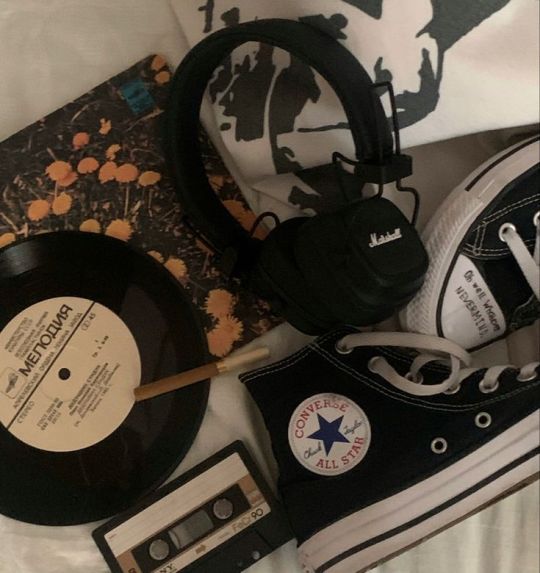
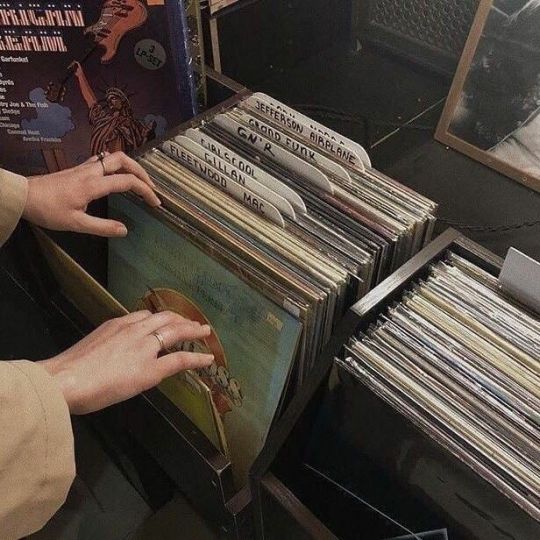
Hey there, indie dreamer! 🎸 Ready for a nostalgic trip through the evolution of indie sleaze music? From the early days of Myspace to the modern streaming era on Spotify, indie sleaze has undergone a wild transformation. Let's dive into how this raw, rebellious genre has adapted and thrived in the digital age, and why it’s still resonating with listeners today.
1. The Myspace Era: Indie Sleaze’s First Digital Playground
Back in the early 2000s, Myspace was the epicenter of indie music discovery. It was the place where bands could upload their tracks, connect with fans, and build a following without needing a major label. Indie sleaze artists were quick to embrace this new digital frontier, using Myspace as their stage and connecting with a global audience in ways that had never been possible before.
DIY Spirit: Myspace was a haven for the DIY ethos that indie sleaze embraced. Bands like The Strokes, Yeah Yeah Yeahs, and Arctic Monkeys used the platform to share their music directly with fans, bypassing traditional media and labels. Their raw, unpolished sound fit perfectly with the unfiltered vibe of Myspace.
Visual Aesthetic: Bands and fans alike used Myspace’s customizable profiles to express their indie sleaze style. With an abundance of glittery backgrounds, band posters, and those iconic “Top 8” friend lists, the platform was a digital reflection of the era’s grungy, glamorous aesthetic.
2. From Downloads to Streams: The Shift to Digital Platforms
As the digital music landscape evolved, so did indie sleaze. The rise of platforms like iTunes and, later, streaming services like Spotify changed the way music was consumed and shared. This transition brought new opportunities and challenges for indie sleaze artists.
Digital Downloads: Platforms like iTunes allowed fans to buy and download individual tracks, making it easier for indie sleaze bands to reach new audiences. Artists could release singles and EPs without needing a full album, and fans could curate their own playlists of their favorite tracks.
Streaming Services: Enter Spotify, Apple Music, and other streaming platforms. The shift from downloads to streaming changed everything. Indie sleaze bands had to adapt to a world where music was less about owning tracks and more about playlist placement and algorithmic recommendations.
3. The Rise of Playlists and Algorithmic Discovery
One of the biggest changes in the music industry over the past decade has been the rise of playlists and algorithmic discovery. For indie sleaze artists, this new way of reaching listeners has both benefits and challenges.
Playlist Power: Playlists like Spotify’s “Discover Weekly” and “Release Radar” have become crucial for indie artists. Getting featured on a popular playlist can lead to a surge in streams and new fans. Indie sleaze tracks with their catchy hooks and raw energy often find a perfect home on these curated lists.
Algorithmic Challenges: While algorithms help discover new music, they also mean that artists need to navigate an ever-changing digital landscape. Standing out in a crowded field requires savvy marketing, consistent releases, and a strong online presence. Indie sleaze bands are learning to leverage social media and streaming data to connect with listeners and build their brand.
4. The Influence of Social Media: TikTok and Beyond
The rise of social media platforms like TikTok has brought a whole new dimension to music discovery. For indie sleaze, TikTok’s short-form video format and viral trends have become a new way to connect with fans and introduce their music to a wider audience.
Viral Hits: TikTok has the power to turn obscure indie tracks into viral sensations. Songs that capture the spirit of indie sleaze—whether through their raw lyrics, catchy beats, or nostalgic vibes—are finding new life on the platform. Creators use these tracks in videos, dance challenges, and memes, leading to a resurgence of interest in the genre.
Fan Engagement: Social media allows artists to interact directly with their fans, building a community around their music. Indie sleaze bands are using platforms like Instagram and Twitter to share behind-the-scenes content, engage with fans, and keep their audience updated on new releases.
5. The Revival of Indie Sleaze: A New Generation Embraces the Sound
Despite the changes in how music is consumed, indie sleaze is experiencing a revival. A new generation is discovering and embracing the genre, inspired by the nostalgia of the early 2000s and the raw, unfiltered energy that indie sleaze represents.
Nostalgic Resurgence: The early 2000s sound is making a comeback, with both new and old artists embracing the grunge pop aesthetic. The rise of vintage-inspired fashion and music is bringing indie sleaze back into the spotlight, with playlists and radio stations dedicated to the genre.
Cultural Impact: Indie sleaze’s influence is seen in modern fashion, film, and art. The grungy, carefree style of the early 2000s is being reinterpreted for today’s audience, blending nostalgia with contemporary creativity.
Final Thoughts, Babe: The Journey Continues
From the DIY spirit of Myspace to the streaming era of Spotify and the viral world of TikTok, indie sleaze has navigated a complex and ever-changing digital landscape. Despite the challenges, the genre remains as vibrant and relevant as ever, resonating with both old fans and a new generation discovering its raw, rebellious charm.
So next time you’re curating your playlist or scrolling through social media, remember the journey indie sleaze has taken to get here. Whether you’re rediscovering the classics or finding new favorites, the spirit of indie sleaze lives on—gritty, glamorous, and forever cool. 🎶✨
#2014 grunge#2014 nostalgia#2014 tumblr#2014 revival#2014 aesthetic#indie music#indie sleaze#bring back 2014#soft grunge#2014core
28 notes
·
View notes
Text
#music for business#music streaming#background music#music playlist#restaurant tips#restaurants#restaurant business#restaurant marketing#restaurant management#restaurant success#restaurant sales#restaurant growth#music for cafes#hospitality#customer service#customer engagement#customer experience#customer satisfaction
1 note
·
View note
Text
HOW TO FIND JOY USING YOUR SUN PLACEMENT

Happiness is found when we are in touch with our higher selves. Look to the giver of life within your natal chart to come into alignment with joy.
Aries - Workout, chase after truth, surround yourself with people who match your energy, tap into an adrenaline rush, smile at yourself in the mirror everyday, don’t wait for desire to pass, take a hot bath, write out all your flaws on a piece of paper and then burn it, play video games, listen to loud music, do a face mask, eat tomatoes, do something you’re afraid of.
1st House - Write out all your best attributes, keep up with your appearance, find new beginnings within the everyday, take care of your body, meet someone new, showcase your identity, march to the beat of your own drum.
Taurus - Go for a hike, solve a puzzle, go to the art museum, eat a home cooked meal, buy yourself flowers, snuggle with something soft, wear your favorite perfume or cologne, clean your house, watch that tv show you’ve already seen a million times, get a neck massage, write an appreciation letter to yourself, create something with materials that can be found at home, eat fresh fruit.
2nd House - Keep a money jar, show up to work on time, show gratitude, keep up with a daily routine, write out all your values, take good care of your material possessions, make a list of priorities and stick to it, form healthy habits.
Gemini - Read a book, go on a spontaneous trip, watch something that makes you laugh, buy a concert ticket, run errands, put on some headphones and go for a walk, google questions, journal, dance to your favorite music, get a manicure, try out a new restaurant, rearrange your room, do yoga and practice breathwork, make a collage using cut up magazines, take a class on one of your favorite interests, smell some lavender.
3rd House- Write daily, keep up with your communications, always check your email, take special care of your siblings, don’t make a habit of turning down social events, be friendly towards your neighbors, try to learn something new everyday.
Cancer - Call family, put on pajamas, watch a movie that will make you cry, sit in the rain, drink something warm, cuddle with a pet, wear your favorite sweater, have a stash of goodies on hand, go home, read a fantasy novel, give someone a hug, eat seafood, go stargazing and have a picnic, stick your feet in the stream, write poetry.
4th House - Keep a tidy home, check up on family, daily hygiene, keep a mood journal, have some privacy, show kindness towards children, mother yourself.
Leo - Look at old childhood photos, brush your hair, lay out in the sun, put on an outfit that makes you feel your best, listen to music that boosts your confidence, daily affirmations, eat oranges and lemons, light a candle, hang out with your best friend, put on a performance when no one is watching, watch a dramatic romance movie, sing in the shower, get a back massage.
5th House - Romanticize your daily life, focus on what your love, chase after your passions, make time for play, showcase your creativity, connect to your inner child, make art, don’t be afraid to be dramatic.
Virgo - Create a new playlist, go to the craft store, tend to a garden, do your laundry, play the sims, watch video essays on youtube, join a book club, talk about your current interests with friends, make jewelry, hangout at a coffee shop, eat fresh veggies and clean food, talk to your plants, go for a walk and take pictures of whatever your find interesting, go to the farmers market.
6th House - Eat healthy, keep up with fitness and physical activity, have a daily system in order, showcase a healthy amount of criticism, take care of a pet, keep an organized house, find ways to be useful everyday, be of service to others
Libra - Grab dinner and drinks with your favorite people, write a love letter to yourself, have a shopping spree, post your thoughts on social media, stand up for someone when no one else is, invest in skincare, wear sunglasses, re-organize your room, lather your body with lotion and oils, eat cheese and yogurt, go to the gym, watch an old hollywood movie, buy a present for someone you love.
7th House - Focus on forming relationships, don’t rely on codependency, keep up with healthy boundaries, read over contracts carefully, be someone people can rely on, always be fair, share with people.
Scorpio - Watch a true crime documentary, make an offering to your ancestors, write your deepest thoughts in a journal and then keep it hidden, go skinny dipping, listen to music in the dark, spend time in nature to gather gems and crystals, play card games, do in depth research on your favorite artist, tend to your alter.
8th House - Don’t run from intimacy, keep up with your debts, take care of your property, discover mystery within the daily, keep a clean bathroom.
Sagittarius - Spend time by a campfire, book a plane ticket to somewhere, go out and party with your best friends, learn how to cook your favorite foreign meals, massage your legs, go thrift shopping, invite people over for a barbeque, read translated books, wear rings, eat plums and cherries, drink plenty of wine, have deep discussions over dinner.
9th House - Travel, ask for advice, pursue education, follow your own personal laws, appreciate different cultures, learn a second language, have strong ethics.
Capricorn - Sneak away for a well deserved break, buy something expensive, brush your teeth, go to a fancy restaurant by yourself, wear tailored pants, read a lengthy novel, give yourself a scalp massage, have a drink at the end of a long day, stay up late into the night, write out all your goals, eat lots of protein, be naughty when you can get away with it.
10th House - Keep a good reputation, follow through on your goals, focus on your career, implement structure within your daily life, be disciplined, use your expertise when appropriate.
Aquarius - Buy something you’ve put a lot of research into, go to the restaurant that only you seem to know about, write out everything you wish for, eat peaches, wear turquoise jewelry, design your own clothing, spend time on the computer, ghost everyone for the day, watch that tv show you’re newly obsessed with, join an exclusive club.
11th House - Be a good friend to people, belong to something larger than you, be socially aware, focus on humanitarian efforts, show respect to the technology you own, always look to the future.
Pisces - Go for a swim, have music constantly playing in the background, write out all your fantasies, get a pedicure, eat berries, do volunteer work, take up painting, wear silk, sleep in all day, daydream freely, lay on your back and cloud gaze, pray, make eye contact with people, wear warm socks, appreciate the background details.
12th House - Spend time alone, welcome endings with open arms, find closure, take up spiritual practice, show respect to the elderly, keep things hidden, maintain a dream journal, don't limit yourself .
Someone in my ask box sent me this really thoughtful question about how to use a natal chart to find happiness and I accidentally deleted it! My apologies!
#aries#taurus#gemini#cancer#leo#virgo#libra#scorpio#sagittarius#capricorn#aquairus#pisces#the 1st house#the first house#the 2nd house#the second house#the 3rd house#the third house#the 4th house#the fourth house#the fifth house#the 5th house#the 6th house#the sixth house#the 7th house#the seventh house#the 8th house#the eighth house#the 9th house#the ninth house
822 notes
·
View notes